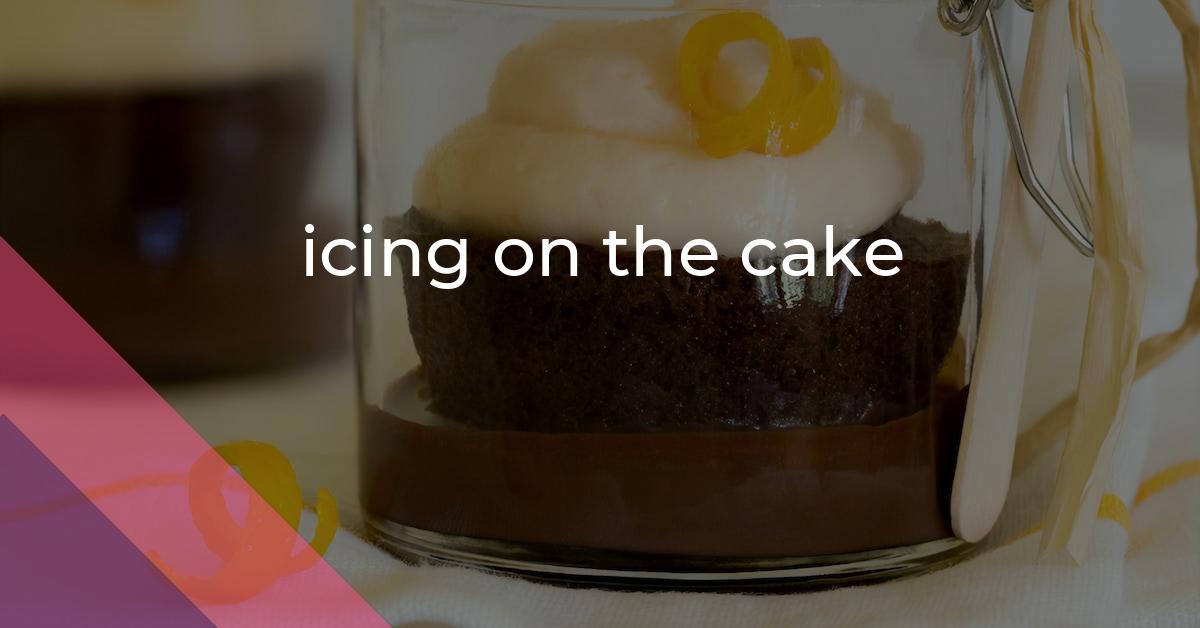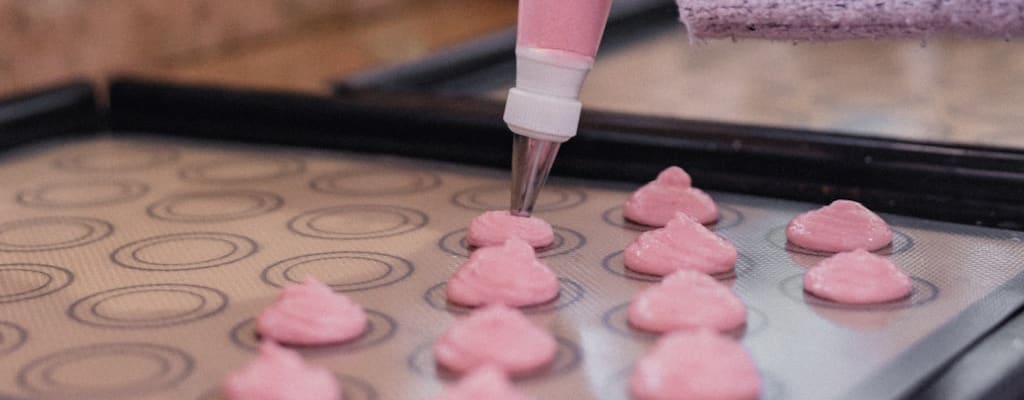icing on the cake: Idiom Meaning and Origin
What does ‘icing on the cake’ mean?
The idiom "icing on the cake" refers to something that is an additional bonus or enhancement to an already good situation or outcome.

Idiom Explorer
The idiom "if nothing else" is used to emphasize the sole positive quality or result when everything else may not be satisfactory.
The idiom "greatest thing since sliced bread" is used to describe something that is considered a significant improvement or innovation.
The idiom "got it going on" means to have a lot of positive qualities or to be very attractive, successful, or skilled.
The idiom "good job" is used to express approval or praise for someone's work or accomplishment.
An idiom that describes a situation where something unexpectedly turns out to be successful or advantageous, despite initial expectations. The outcome is usually positive, but may also involve a degree of unpredictability or chaos.
An idiom that signifies something or someone considered to be a great blessing or stroke of luck, often seen as a divine or fortunate occurrence.
The idiom "fruit up" means to enhance or make something more enjoyable, often by adding or incorporating additional elements or features. This idiomatic expression is derived from the idea of adding fruit to a dish to make it more flavorful. It can be used in various contexts, including food, experiences, or even situations that require improvement or enhancement.
The idiom "for good measure" means to do something in addition to what is necessary or expected, often for extra effect or completeness.
The idiom "fly in the ointment" refers to a small but significant flaw or issue that spoils something positive or favorable. It symbolizes how even a small problem can greatly detract from the overall enjoyment or success of a situation.
The idiom "feather in one's cap" means to have an achievement or accomplishment that one can be proud of or use to enhance their reputation.
Sweet Symbolism
The idiom "icing on the cake" is derived from the literal meaning of "icing" as a sweet or decorative covering for a cake, and the figurative meaning of "cake" as something gratifying. When used metaphorically, it refers to an additional benefit or bonus that enhances an already enjoyable situation.
The idiom "icing on the cake" has been in use for many decades, with its origins tracing back to the mid-20th century. It gained popularity in the United States and has since become widely recognized and used.
It signifies the addition of a positive element that makes the overall experience even better. The "icing" in this idiom functions metaphorically to represent the additional enhancement, like the decorative topping on a cake.
This idiomatic expression is most commonly used in a positive context, indicating an extra advantage or benefit. For example, if someone receives a promotion at work and also gets a significant pay raise, they might say that the pay raise was the "icing on the cake." In this case, the promotion itself is already a positive outcome, and the pay raise serves as an additional bonus.
The idiom "icing on the cake" does not imply that the additional benefit is necessary or expected. Rather, it suggests that the presence of the additional benefit enhances an already favorable situation, making it even more satisfying.
The idiom "icing on the cake" is often used in everyday conversations, as well as in writing. It is particularly common in informal contexts, among friends, colleagues, and family members. Additionally, it frequently appears in various forms of media, including books, articles, and advertisements. Its widespread usage reflects its effectiveness in conveying the idea of an added bonus or enhancement.
Despite the familiarity and popularity of the idiom, its specific origin and early usage remain somewhat uncertain. While it is commonly believed to have originated in the United States, no definitive evidence exists to support this claim. The exact moment of its first appearance in written or spoken language cannot be determined with certainty. Nevertheless, the idiom's enduring presence and frequent usage suggest that it has become an integral part of the English language.
The idiom "icing on the cake" paints a vivid image of a cake being made even more enticing with the addition of a sweet, decorative topping. Similarly, it conjures a sense of delight and satisfaction in the presence of an extra benefit or bonus. The phrase encapsulates the notion that even the most enjoyable or favorable situations can be further enhanced, leaving us with a sense of completeness and the tantalizing prospect of even greater satisfaction still waiting to be discovered.
The idiom "cream in one's coffee" is another expression that conveys the idea of an additional benefit or enhancement. It is often used to describe something or someone that complements or enriches a positive situation. Just as adding cream to coffee enhances its flavor and richness, the presence of something or someone as "cream in one's coffee" adds an extra touch of goodness or excellence.
The idiom "go horribly right" is yet another expression that relates to the idea of unexpected positive outcomes. It refers to a situation that starts off in a potentially negative or disastrous way but ends up turning out surprisingly well. It is an ironic twist on the expectation of failure, suggesting that sometimes things can go so wrong that they come full circle and turn out even better than anticipated.
Example usage
The idiom *icing on the cake* can be used in a sentence in the following examples:
1. She got a promotion at work, and finding out her favorite band was playing at the company party was just the icing on the cake.
2. The vacation was already amazing, but when they unexpectedly upgraded their hotel room to a suite, it was the icing on the cake.
3. After winning the championship, receiving a personal congratulations from their favorite athlete was the icing on the cake for the team.
More "Expression" idioms



